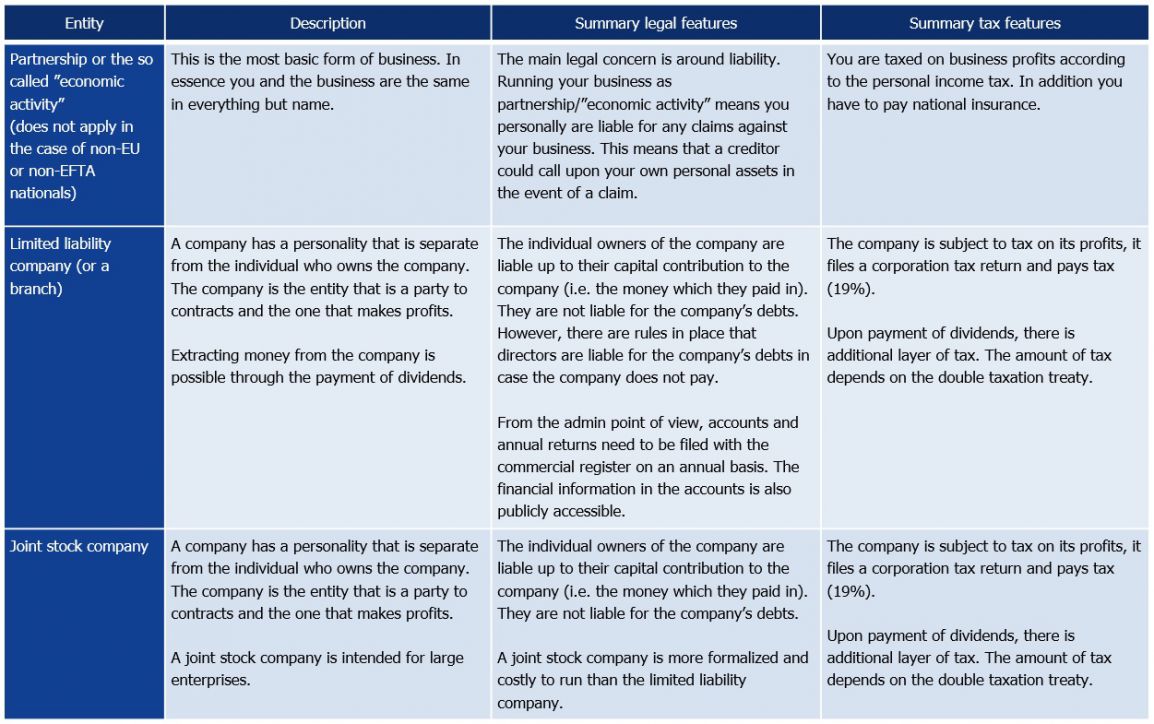August 02, 2019
There are a number of alternatives open to an investor who wishes to do business in Poland. These alternatives include:
-
- being a sole trader (or the so called ‘economic activity’)
- establishing a branch office
- establishing a Polish subsidiary company
- acquiring an existing Polish company
-
There is no “one size fits all” answer, and deciding whether you should run your Polish business as a sole trader, a branch or a limited liability company can change depending on the circumstances.
As well as tax, legal and regulatory consideration, there are a number of commercial factors to consider when deciding which of these alternatives is the most appropriate, such as, product origin, available funding, size of the business, clientele and the level of risk to be incurred.
The majority of foreign entities wishing to do business in Poland set up a branch or incorporate a subsidiary. Sole trader option is popular for smaller operations. Further details on each of these are set out below in a table.
Sole trader
Being a sole trader means being in business on your own. It’s a relatively straightforward structure, where you are self-employed and, legally, you and your business are considered as one. It’s the most common structure used by self-employed individuals and small businesses. This option is available without any restrictions to the EU citizens.
Branch office
The main point to note about operating a branch is that it is not a separate legal entity. This means that the foreign company is directly responsible for the operations and liabilities of the Polish establishment. The main company needs to designate an authorised person who will represent the branch in Poland. The branch can also directly hire employees for the Polish establishment.
The Polish establishment is required to run the accounting books and is obliged to file the annual accounts with the commercial court. The branch may also be subject to Polish income tax (if the activity of the branch brings profit).
Limited liability company
The main benefit of a company limited by shares is that the liability of the shareholders is limited to the amount paid on their shares in the company. It follows that if the shares are fully paid up, the shareholders will not normally be liable to contribute further amounts in the event of the company becoming insolvent. A company is a separate legal entity, distinct from its shareholders and directors. This makes it an attractive proposition for a foreign investor looking to establish a business in Poland. Separate legal entity status enables the company to enter into contracts directly and offers the parent company protection from the subsidiary’s liabilities.
Establishing a limited liability company is a straightforward process which can usually be completed within 2 weeks.
Below, we present some basic information about the most common business structures which are available in Poland:

What is the right business structure for you and whether a limited liability company will be the most appropriate choice – this should be established by your advisors. Getting things right from the start will increase your chances for a successful investment.
Read also
January 29, 2026
NDAs: Essential Shields for Trade Secrets in Poland's...
In today's competitive landscape, proactive secret management isn't optional - it's a strategic edge. Non-disclosure agreements (NDAs) have become...
Read moreJanuary 16, 2026
Practical Steps to Transfer Shares in a Polish Sp z...
Are you going to transfer shares in a Polish sp z o.o.? Follow the Commercial Companies Code strictly or risk invalidity. Transferring...
Read moreJanuary 15, 2026
WEBINAR: Practical Steps to Transfer Shares in Polish...
Transferring shares in a Polish sp. z o.o. requires a structured process governed by the Commercial Companies Code to ensure legal validity,...
Read more



